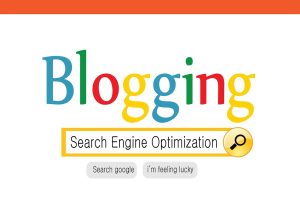
Blogging is not just about sharing your thoughts; it’s about contributing positively to the digital community. This guide explores the ethical considerations and best practices that bloggers should adhere to, ensuring integrity, credibility, and a positive online environment. Let’s dive into the principles that make for responsible and effective blogging.
1. Transparency and Disclosure:
Honest Communication:
Build trust with your audience by being transparent about your affiliations, sponsorships, and any potential conflicts of interest. Disclose relevant information to maintain credibility.
Best Practices for Transparency:
- Clearly disclose affiliate links and sponsored content.
- Provide information about your relationships with brands.
- Be upfront about any potential biases in your content.
2. Respect for Intellectual Property:
Copyright and Attribution:
Respect the intellectual property of others by properly attributing content and obtaining permission when necessary. Avoid plagiarism and ensure that your content complies with copyright laws.
Best Practices for Intellectual Property:
- Attribute quotes, images, and references appropriately.
- Obtain permission for the use of copyrighted material.
- Create original content and respect creative works.
3. Accuracy and Fact-Checking:
Ensuring Credibility:
Maintain the credibility of your blog by ensuring the accuracy of the information you share. Fact-check your content thoroughly to avoid spreading misinformation.
Best Practices for Accuracy:
- Verify information from reliable sources.
- Cross-check facts before publishing.
- Correct any errors promptly and transparently.
4. User Privacy and Data Protection:
Respecting User Privacy:
Prioritize user privacy by implementing responsible data protection practices. Clearly communicate your privacy policy and ensure compliance with data protection regulations.
Best Practices for User Privacy:
- Clearly state your privacy policy on your blog.
- Obtain explicit consent for collecting user data.
- Secure sensitive information and use secure connections.
5. Engagement and Community Guidelines:
Fostering a Positive Community:
Create a positive and inclusive online community by establishing clear community guidelines. Encourage respectful discussions and address inappropriate behavior promptly.
Best Practices for Community Guidelines:
- Define acceptable behavior within your community.
- Moderate comments and discussions actively.
- Foster a supportive and inclusive environment.
6. Authenticity and Originality:
Being True to Yourself:
Authenticity is the cornerstone of a successful blog. Be genuine, share your unique voice, and avoid misleading practices that compromise your authenticity.
Best Practices for Authenticity:
- Write in your own voice and share personal experiences.
- Avoid deceptive practices, clickbait, or misleading titles.
- Be transparent about your expertise and limitations.
7. Accessibility and Inclusivity:
Ensuring Accessibility:
Make your content accessible to a diverse audience, including individuals with disabilities. Implement practices that enhance the inclusivity of your blog.
Best Practices for Accessibility:
- Use accessible website design and formatting.
- Provide alternative text for images.
- Ensure compatibility with screen readers.
8. Responsible Social Media Usage:
Ethical Social Media Practices:
Extend ethical considerations to your social media presence. Be responsible, respectful, and mindful of the impact of your social media activities on your audience.
Best Practices for Social Media Usage:
- Avoid engaging in online harassment or bullying.
- Fact-check before sharing information on social media.
- Encourage positive and constructive discussions.
Blogging ethics and best practices are essential for building a trustworthy and impactful online presence. By adhering to these principles, you contribute to a positive digital environment, foster trust with your audience, and elevate the overall quality of the blogging community. Embrace these ethical guidelines as you continue to share your thoughts and insights online. Happy blogging!








